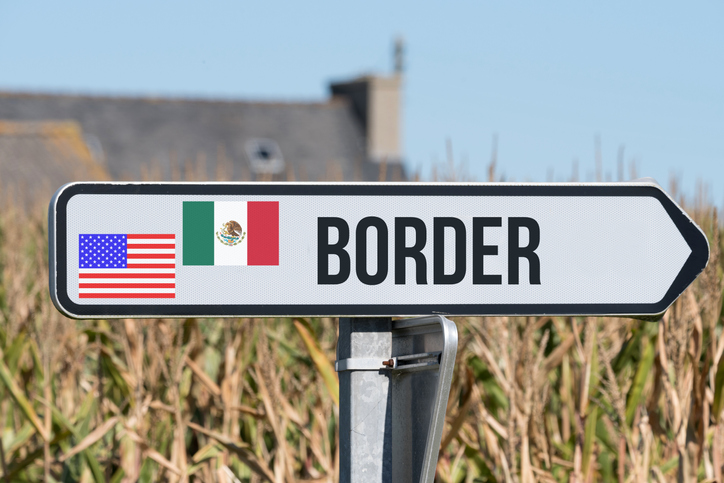Cross-border logistics can be a major challenge for e-commerce companies looking to expand their operations into new markets. It can also be a significant opportunity for those who can navigate the complexities and provide a seamless experience for their customers.
In this article, we will discuss the key challenges faced when it comes to cross-border logistics, share tips on how to overcome these common issues, and provide insights on global trends in cross border transportation.
Cross-border logistics is the movement of goods and products across international borders. It involves managing multiple transportation modes, navigating customs regulations, and ensuring the timely delivery of goods to customers. For e-commerce companies, cross-border logistics can be a challenge, but it also presents a significant opportunity to expand their customer base and increase revenue.
Key Challenges in Cross-Border Logistics
Meeting Customer Expectations
One of the biggest challenges in cross-border logistics is meeting customer expectations. Customers expect timely and affordable shipping, tracking and transparency, and reliable delivery times. However, cross border transportation can be unpredictable and sometimes expensive. To overcome these challenges, e-commerce companies must carefully choose their logistics providers and consider alternative transportation modes such as rail or air.
Customs
Another significant challenge is customs. Regulations and compliance can be complex and vary by country, leading to delays and unpredictability. Tariffs and duties can also increase the cost of cross border transportation. To overcome these challenges,e-commerce companies should partner with reputable logistics providers who have experience navigating customs regulations and complying with international trade agreements.
Cost
Transportation costs, storage and warehousing fees, and labor costs can add up quickly. E-commerce companies must carefully consider their options and choose logistics providers who offer affordable and reliable services. This can involve consolidating shipments to reduce transportation costs or investing in inventory management and forecasting to minimize storage and warehousing fees.
Tips for Overcoming Cross-Border Logistics Issues
Partner with a Reputable Logistics Provider
Partnering with a reputable logistics provider who understands cross-border logistics and has experience navigating customs regulations can help e-commerce companies avoid costly mistakes and delays. The logistics provider should have a strong network of transportation partners, offer competitive rates, and provide tracking and visibility throughout the transportation process.
Streamline Customs Clearance Processes
E-commerce companies should invest in streamlining their customs clearance processes to reduce delays and avoid penalties. This can involve providing accurate and detailed documentation, staying up-to-date on international trade agreements and regulations, and working with logistics providers who have experience navigating customs.
Invest in Inventory Management and Forecasting
To minimize storage and warehousing fees, e-commerce companies should invest in inventory management and forecasting. This involves accurately predicting demand and adjusting inventory levels accordingly. This can help reduce the amount of time products spend in storage and minimize the cost of warehousing fees.
Consider Alternative Transportation Modes
E-commerce companies should consider alternative transportation options such as consolidating, multi-stop / multi-zone truckloads, or rail to reduce transportation costs. Air services can be used to improve delivery times if margins allow or if the customer selects faster delivery times. Many of these modes of transportation can also be more sustainable and eco-friendly, which is becoming increasingly important to consumers.
Global Trends in Cross Border Transportation
The Rise of E-commerce and its Impact on Cross-Border Logistics
The rise of e-commerce has had a significant impact on cross-border logistics, increasing demand for affordable and reliable shipping options. E-commerce companies must carefully consider their logistics options and choose providers who can meet the demands of their customers.
Technological Advancements in Logistics and Transportation
Technological advancements in logistics and transportation, such as real-time tracking and visibility, have made cross-border logistics more efficient and reliable. E-commerce companies should consider logistics providers who have invested in these technologies to provide a better customer experience and increase operational efficiency.
The Role of Government Regulations and Policies
Government regulations and policies play a significant role in cross border transportation. E-commerce companies must stay up-to-date on international trade agreements and regulations and work with logistics providers who have experience navigating these policies. Government policies can also create opportunities for e-commerce companies to expand into new markets or benefit from trade agreements.
Reliability in Cross Border Logistics
Cross-border logistics presents both challenges and opportunities for e-commerce companies looking to expand their operations into new markets. Meeting customer expectations, navigating customs regulations, and managing costs are key challenges e-commerce companies face.
However, partnering with a reputable logistics provider, streamlining customs clearance processes, and investing in inventory management and forecasting can help overcome these challenges. Global trends in cross border transportation will continue to shape the industry. E-commerce companies need to stay up-to-date on these trends and work with logistics providers who can provide the expertise and services necessary for reliable cross-border relationships.
At Visigistics, we understand the importance of reliable cross-border logistics, and we can provide the expertise and services needed to overcome these challenges and take advantage of the opportunities presented by cross border transportation.





